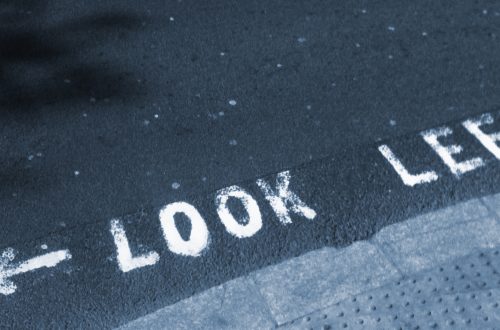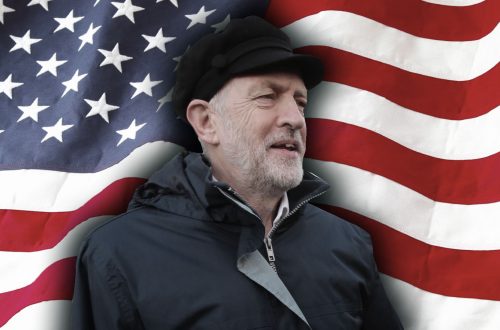This is a Cross-Post by Dave Rich at the CST Blog
Last week Mehdi Hasan, political editor at the New Statesman, wrote a column about the activities of pro-Israeli lobbyists in Washington D.C., which he sees as the cause of the current impasse in the Israeli/Palestinian peace process. This paragraph, in particular, caught the eye (emphasis added):
The Congress of the United States consists of 100 senators and 435 members of the House of Representatives; in effect, just 535 Americans are blocking efforts to bring peace to the Middle East. Why? Forget the pious guff about Israel being the region’s “only democracy” and a “valued friend and ally” of Washington. In the corrupt and dysfunctional US political system, where legislators are outnumbered by special interests, from the gun lobby to Big Pharma, the Israel lobby – specifically, the American Israel Public Affairs Committee (Aipac) that brags on its website about being “the most important organisation affecting America’s relationship with Israel” – has a financial stranglehold on both main parties. According to William Quandt, a former adviser on the Middle East to the Nixon and Carter administrations, “70 per cent to 80 per cent of all members of Congress will go along with whatever they think Aipac wants”.
Political blogger Guido Fawkes accused Hasan of peddling an updated version of the old antisemitic conspiracy theory, about Jews using their financial muscle to control American politics for their own benefit.
Hasan defended himself robustly in a blogpost on the New Statesman website, arguing:
The piece wasn’t supposed to be about Jews or, for the matter, the State of Israel; it was focused on the cravenness, corruption and dysfunctionality of two elected chambers on Capitol Hill that have long been in thrall to special interests – in this particular case, the Israel lobby.
Both Fawkes and Hasan base their arguments on partial readings of the original article, and a careful selection of the relevant facts. Mearsheimer & Walt’s publication of The Israel Lobby introduced a sanitised, respectable version of this conspiracy theory into mainstream circulation, which now appears quite regularly in the UK media, as CST’s Antisemitic Discourse Report (pdf) has pointed out in the past. I do not intend to adjudicate between them, other than to point out that Hasan’s use of the phrase “a financial stranglehold” suggests a malevolence on the part of AIPAC (picture in your mind somebody being strangled) that alters the tone of his argument unnecessarily.
Rather, it is the first phrase emphasised above that caught my eye: that “in effect, just 535 Americans are blocking efforts to bring peace to the Middle East.” Think about that for a moment: no Israelis, no Palestinians, no Iranians or Syrians or anybody else: just 535 Americans. Even if Hasan only means this within an American context, it is clearly nonsense. However, it is a particular kind of nonsense: the kind that claims a peaceful utopia is within reach, and could be grasped were it not for some particular group obstructing smooth passage to the glorious future that we all deserve. Historically, there are quite a few examples of political or religious utopianism identifying Jews (in some form) as that obstacle. In this article, Hasan identifies Zionists (or pro-Israelis) as the obstacle, and goes out of his way to point of that (a) they are not all Jews and (b) many Jews disagree with them.
Hasan clearly understands the pitfalls of writing on this subject, and he has genuinely tried to avoid producing an antisemitic article. The problem is that his article is basically just another conspiracy theory. It offers a simplistic argument that completely ignores the hopes, fears, needs and goals of Israelis and Palestinians themselves, or of any other actors in the region, and imagines that the whole problem could be solved by a wave of America’s magic wand (or a shake of its big stick).
To put this in context, Lawrence Freedman’s A Choice of Enemies devotes around 550 pages to American foreign policy in the Middle East. It spans five Presidents, from Carter to Bush jnr.; yet AIPAC is listed in the index just three times, and two of those refer to episodes where they failed to influence American policy as they wished. The book’s Dramatis Personae lists 85 American politicians, officials and their advisers, but not a single lobbyist. (I appreciate that some people seem to believe Freedman is part of the same conspiracy as AIPAC, but I don’t accuse Hasan of that). Freedman’s is far from the only book to shed light on the complex, messy and often contradictory processes and interests that go into American policy making in this region (Steve Coll’s Ghost Wars is another). Pro-Israel lobbyists play a role, but nothing like the dominating role Hasan suggests. It reflects very poorly indeed on the New Statesman, and much of the wider left, that this sort of thinking has replaced the kind of proper political analysis on which the magazine built its reputation.
This is one reason why Fawkes (and probably others) read Hasan’s article and sensed an antisemitic argument: it mimicks the thought structure of antisemitic conspiracy theory, despite Hasan’s genuine efforts to avoid fingering Jews as the culprit. The other reason is that contemporary antisemitism often uses ‘Zionist’ as an avatar for ‘Jew’. Any article about Zionists, or pro-Israelis, using financial pressure to manipulate American politics, especially for the purposes of war or oppressing non-Jews, is likely to carry an antisemitic echo. I appreciate that it can be difficult to write about pro-Israel lobbying in American politics without falling into this trap. Avoiding conspiracy theories and not attributing great, unseen malevolent power to dark Zionist forces is a good place to start.


